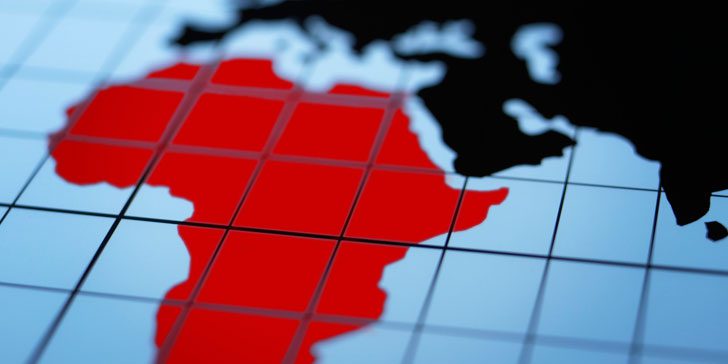Economic Decolonization: How Africa Can Break Free from External Dependency
By Infornews Editorial Team | Published: May 2025
Introduction
Although African countries achieved political independence decades ago, many still remain economically tethered to their former colonial powers and global institutions. This continued dependence, often called neocolonialism, limits the continent’s potential for self-determined growth. Economic decolonization is more than a symbolic act—it’s a necessary shift toward sovereignty, resilience, and long-term development.
This article explores how Africa can strategically reduce its dependency on foreign aid, imports, and exploitative trade arrangements to build a self-reliant and prosperous future.
Understanding Economic Colonization and Its Legacy
Colonialism was not just about territory—it was about economic exploitation. Colonial powers structured African economies around the extraction of raw materials and cheap labor for export, while suppressing local industry and infrastructure development.
After independence, many countries retained the same economic models, continuing to export primary goods (like oil, gold, and coffee) while importing manufactured products. This dependency on global markets and Western institutions has led to vulnerability, underdevelopment, and debt traps.
Key Indicators of Economic Dependency in Africa
- High levels of foreign debt: Many African nations owe billions to the IMF, World Bank, China, and private lenders.
- Dependence on aid: Several countries rely on foreign aid for up to 30% of their budgets.
- Import dependence: Africa imports over 85% of its food despite having vast arable land.
- Commodity-based exports: Raw materials constitute over 70% of African exports.
- Limited manufacturing: Africa accounts for less than 2% of global manufacturing output.
Strategies for Economic Decolonization
To cut ties of dependency, African nations must embrace a new economic vision centered on self-reliance, regional integration, and value creation. Below are key strategies for achieving economic decolonization.
1. Invest in Local Industrialization
Manufacturing holds the key to reducing imports and creating jobs. Governments should prioritize:
- Building industrial parks and special economic zones;
- Processing raw materials locally;
- Encouraging private sector innovation;
- Supporting agro-processing to feed and export food sustainably.
2. Develop Intra-African Trade
Trading with neighbors is more stable than relying on foreign markets. The African Continental Free Trade Area (AfCFTA) is a major step toward this goal. It can:
- Lower tariffs across 55 African countries;
- Expand the African consumer market to over 1.4 billion people;
- Create regional value chains and reduce logistical costs;
- Promote African products and services on the continent.
3. Reform the Education System
African education systems still reflect colonial curricula, producing job seekers rather than innovators. Educational reform must focus on:
- Skills training in technology, agriculture, and manufacturing;
- Entrepreneurship and financial literacy;
- Indigenous knowledge systems and African history;
- Science, engineering, and mathematics (STEM).
4. Build Technological Independence
Technology is a catalyst for growth. Africa must reduce dependency on imported technologies by:
- Developing local tech startups and innovation hubs;
- Investing in digital infrastructure;
- Training African software developers and engineers;
- Protecting data sovereignty from foreign control.
5. Reform Financial Systems
Much of Africa’s financial system is controlled by Western institutions. To take control:
- Create and strengthen African-owned banks and credit unions;
- Encourage use of regional currencies for trade (like the ECO in West Africa);
- Establish a Pan-African payment system;
- Reduce reliance on the US dollar and Euro in intra-African trade.
6. Strengthen Food Security
Despite its fertile lands, Africa imports billions in food annually. Steps to change this include:
- Investing in smallholder farmers and cooperatives;
- Modernizing agriculture through smart farming and irrigation;
- Building food storage and distribution networks;
- Protecting indigenous crops and seeds from foreign patents.
Breaking the Aid Dependency Cycle
Foreign aid, while helpful in emergencies, often distorts local economies and fosters dependency. For economic decolonization:
- Governments must mobilize domestic resources through taxes and revenue collection;
- African philanthropists and diaspora investors can fund local initiatives;
- Public-private partnerships (PPPs) should fund infrastructure instead of foreign loans.
Reclaiming Cultural and Intellectual Autonomy
True decolonization must also address the mental and cultural dimensions. African media, literature, and research should be led by Africans. This means:
- Promoting African languages in education and media;
- Encouraging African-centered research and think tanks;
- Controlling the narrative on Africa’s development story;
- Resisting foreign cultural domination through media and entertainment.
Case Studies of Economic Decolonization in Action
Rwanda: Self-Reliance and Innovation
Rwanda has made significant strides in reducing dependency by investing in homegrown technology, digitizing government services, and refusing excessive foreign aid.
Ethiopia: Local Manufacturing Push
Ethiopia has built industrial parks and invested in light manufacturing to shift from aid to trade, exporting textiles and apparel globally.
Ghana: Building Value in Gold and Cocoa
Ghana is working to process its cocoa and gold locally to capture more value, instead of exporting raw materials.
The Role of Pan-Africanism in Economic Liberation
Pan-Africanism is not just a political ideology—it is an economic necessity. United, African countries can negotiate better deals, build large-scale infrastructure, and support one another through crises. Regional solidarity is crucial for decolonizing development strategies and achieving self-sufficiency.
Conclusion: A Call to Action
Economic decolonization is not a one-time event—it is a continuous process of reclaiming sovereignty. Africa must reject models that keep it dependent and build new systems based on local innovation, intra-African cooperation, and self-determination. By doing so, the continent can honor the dreams of its forebears and create a future rooted in dignity, resilience, and prosperity.


Enviar um comentário